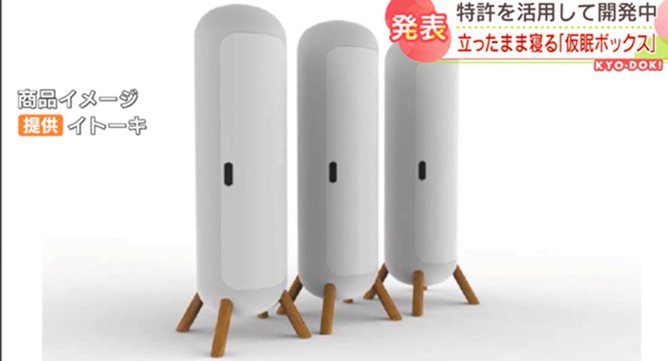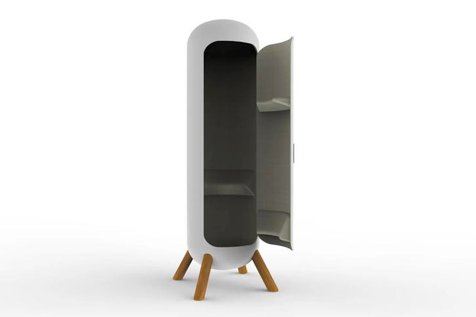Excessive office hours are a problem faced by many company employees in Japan, and there is even a dedicated term “Inemuri” to describe people taking naps on public transportation or during their spare time at work to survive a full day at work.
Recently, in order to bring a healthier office environment to company employees, Japanese furniture company Itoki Corp and wood supplier Koyoju Gohan KK are collaborating to launch vertical “Nap Boxes” that allow employees to You can sleep comfortably in the office while standing.

The shape of this product is like a huge water heater, with some fixed supports installed inside, when people rest in it It can support the person’s head, hips, knees and back, so that the person can maintain a standing sleeping position. There are also four shelf supports at the bottom that allow the nap box to stand upright.

Because many Japanese people take a nap in the toilet, Saeko Kawashima, the person in charge of designing the product, thinks this is not healthy, The “siesta box” will be more comfortable.
Research shows that naps can help improve memory, concentration, creativity and productivity. A NASA study showed that taking a 26-minute nap can increase your efficiency by 33%.
Kawashima hopes the “nap box” will help address Japan’s strict office culture, “I think many Japanese like to work continuously, and we hope companies can use it as a more flexible way to rest.”
Currently the product is still in the design stage, and the two partner companies plan to bring this “sleep box” to the market in a year’s time.
It is reported that Japan is one of the countries with the longest working hours in the world. After the failure of World War II and the “bubble economy” in the mid-1980s, the working hours of the Japanese once ranked first in the world. This also gave rise to the word “karoshi”, which translates to “death from overwork”.
In a survey released by the Japanese government in 2016, more than one-fifth of company employees worked more than 80 hours of overtime a month, often without overtime pay.
Currently, on the bright side, Japanese working hours have decreased. According to the Japanese labor law, the statutory working hours are no more than 8 hours a day and no more than 40 hours a week. At least one day off per week, and more than 4 days off in four weeks. When workers work outside the specified hours and on specified rest days, they must pay corresponding allowances.
Jiupai News Intern Reporter Liang Xia
[Source: Jiupai News]
Disclaimer: The copyright of this article belongs to the original author, if the source is wrong or If your legal rights are violated, you can contact us by email, and we will deal with it in a timely manner. Email address: [email protected]